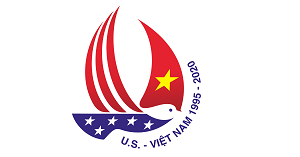Vietnam strives for Drug-free ASEAN
VIET NAM STRIVES FOR DRUG-FREE ASEAN
Oct. 14 (VNA) -- Viet Nam, a member of SEAN and current President of ASEAN, would do its best to make positive contributions to together with other ASEAN member countries obtain the goal of a drug-free ASEAN in 2015.
So said Vietnamese Deputy Prime Minister Pham Gia Khiem at the International Congress entitled "In Pursuit of Drug Free ASEAN 2015" in Bangkok, Thailand, from Oct. 11-13.
During that time, Deputy PM Khiem had bilateral meetings with the chief delegates of China, Laos and Cambodia, the UN Deputy Secretary General and the Secretary General of the Economic and Social Commission for Asia and the Pacific (ESCAP). They shared experiences in and informed each other of drug control and discussed how to win coordination and assistance from other countries and international organizations in the field.
In his speech, Deputy PM Khiem said that synthetic drugs are now on the rise, while traditional ones like poppy opium and heroin are still popular. In this respect, sales of synthetic drugs had been detected in half of Viet Nam's provinces and cities, hence more than 100,000 people in the country addicted to drug.
The Deputy PM pointed to the serious effect of drug on social security, saying drug criminals have changed Southeast Asia and Asia into a place for illegal production, stockpile and consumption.
He elaborated that Viet Nam had detected foreigners producting 234 kg of Methamphetamin in 1995 and discovered 1,768 cases relating to drugs in 1999. As many as 85.5 percent of drug addicts were people with criminal records and 40 percent of murderers were drug addicts.
Seriously still, the Deputy PM said, drug was causing HIV/AIDS and other serious diseases spreading, with 60 percent of Vietnamese HIV/AIDS carriers being drug addicts.
Deputy PM Khiem stressed international and regional cooperation was important in the fight against drug as it was a prolonged and complicated process that needed synchronous, bold and suitable measures for each situation and each objective.
He said Viet Nam always gave priority to the fight despite the country was a developing country with a limited strength. The country highlighted drug prevention as a major work and focused on information provision and education to raise people's awareness of drug harms. Besides, the Government had established a relevant national committee put under the chairmanship of a Deputy PM. Viet Nam had adhered to all the three international conventions on drug prevention and control and cooperated with many countries and international organizations, particularly the United Nations Drug Control Programme (UNDCP). With its own efforts and international assistance, the country reduced the acreage under opium poppy from 19,000 ha in 1993 to 500 ha, and was trying to make an end to re-transplantation. It had also obtained initial results in drug detoxification through in-group and community-based programmes. A law on drug control would be submitted to the National Assembly for early approval, the Deputy PM added.
He noted that Viet Nam highly appreciated measures mentioned in the plan of action of the congress but suggested several others for a more effective cooperation in the region, such as to form and develop national and inter-regional drug information networks. Further coordination of other countries and international organizations with ASEAN countries was neccesary as the regional countries, with the UNDCP's assistance in training, providing information and technical consultancy, building a regional control network and seeking financial sources, were striving for a drug-free region by 2015




